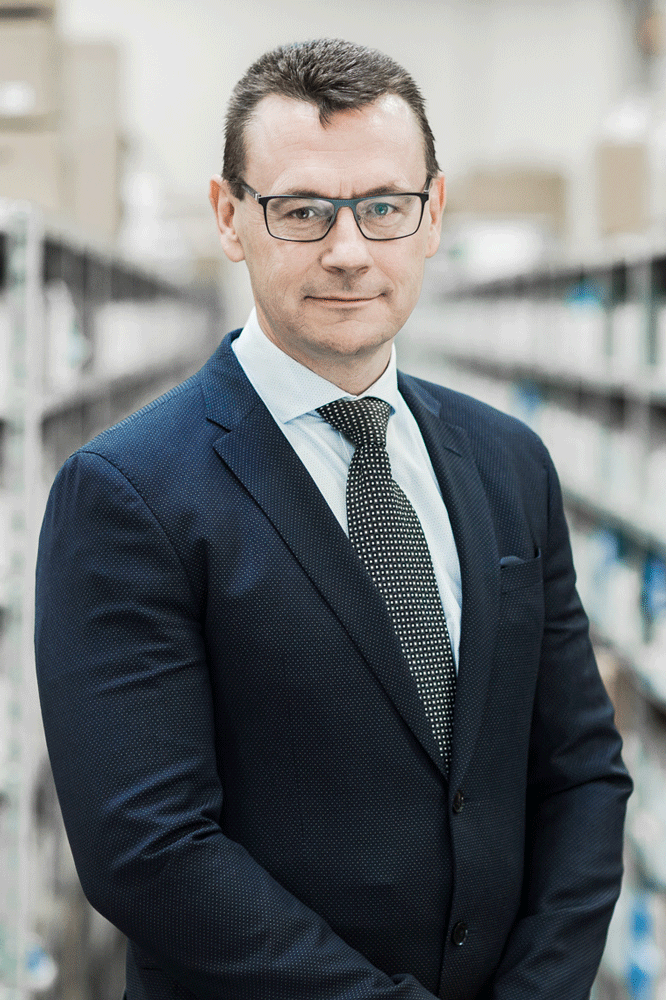We must dare to go new ways. Otherwise, we will slowly but surely get run over
At 30, he became part of Solar’s management board. Today, he heads 3,000 employees in five countries. Meet Jens Andersen, who dreamed about becoming a veterinarian, says no thanks to sun holidays and spends his time with the customers instead of in the office.
When you meet him in the office, only the subdued suit reveals who he is. He greets everyone by name, talks to colleagues in the canteen, and dances at office parties.
- People can seem a bit reticent when they meet me. But I’m still just one of our 3,000 employees.
Even though Jens Andersen is the CEO of Solar, he is committed to being authentic and informal. Because after all, it’s craftsmen we are doing business with, as he points out.
- I don’t pretend to be anyone special. You should be yourself. And there is room for that in Solar.
This is one of the reasons why he has been with the company for 20+ years. He started out as finance manager in 1998, but already within the first year, big changes took place.
- At one of our board meetings, I was told to step outside. And then they decided to put me on the management board, he says.
From accountant to CEO
10 years further down the road, the job takes Jens to Germany, where he becomes Geschäftsführer of the local Solar subsidiary at the time.
- It didn’t take long for me to accept that challenge. That’s just how I am.
His time in Germany taught him a lot about cultural differences and how big changes require courage. He brought this experience back with him in 2012, when he became managing director of Solar’s Danish subsidiary.
- My goal has always been to make a difference – not to become CEO. I got to where I am today because I am hard working and humble. And because someone believed in me and gave me opportunities, which I have lived up to.
This is why he also gives his own employees a lot of responsibility, so they don’t “dry out”, as he puts it. Because it’s important to accept that some things you can do yourself, other things should be left to others.
Business and grandchild
Even though his business card says CEO, Jens is still managing director of the Danish subsidiary. It might be difficult to understand how these two demanding jobs can be combined.
- It’s about setting the right team. I have a lot of trust in the people around me, and I have confidence in their competences and abilities to do the job without me.
With many late meetings and a lot of days on the road it’s equally important to have a good team at home.
- I have a good wife, who has always supported me and been ready to take on most of the workload at home. So, I’ll hold on to her tightly, he says with a smile.
Although his leisure time is often spent on work, he also has time for fitness, hunting and his two grown-up kids – and he has also become a grandfather.
- Weeks of sun holidays and beach chairs are not my thing. I’m kind of always working, and that suits me well, he says, and continues:
- If I’m not dedicated to the job, who else would be?
Intermediaries are an endangered species
His dream was actually to become a veterinarian, but in his childhood home in Vejle in Jutland, Denmark, there were always discussions about how to run a solid business. His father was a haulier, which has taught the CEO to think independently.
- I have many ideas and find large analyses somewhat daunting. I prefer reaching 80 per cent of the goal rather than getting 100 per cent perfect.
The restlessness is also visible in his work, where he spends more time on the road than in his office.
- It’s important to get out there and talk to customers and suppliers. They are the ones that help us move forward.
E.g. the idea for Fastbox came up because a customer had a challenge that Solar was able to solve.
- We should not just move products from A to B, because then we are not going to exist in the future. We need to add knowledge.
But this requires something special for a company that has been around in the business for 100 years.
- We need to have even more courage than we have had historically. Because Solar is going to be relevant in the future if we can create value and efficiency. But it requires that we dare to go new ways. Because otherwise we will slowly but surely get run over.
